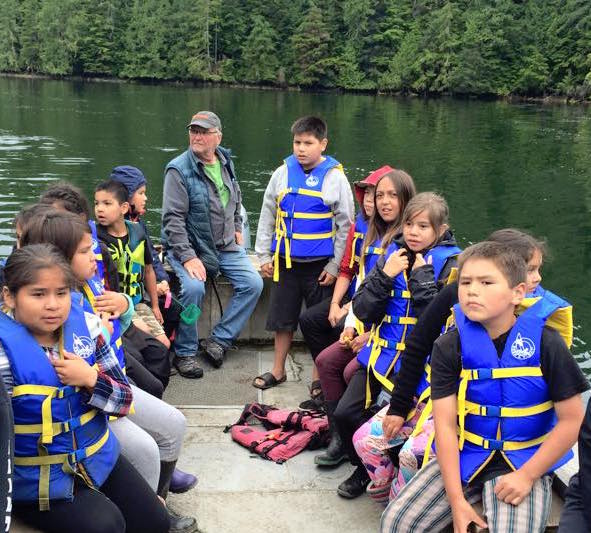Estimated Reading time

3 Mins
CBC News: Indigenous community in B.C. rallies to keep culture camp alive

By Trevor Jang for CBC.
It was the culture camp that almost didn’t happen.
For the past 16 years, youth in Bella Bella, B.C., have spent their summers at the nearby Koeye camp, an innovative learning experience that blends Heiltsuk First Nations culture with modern science.
But this year, Service Canada pulled their funding and camp organizers had two weeks to find $40,000 to pay their summer student employees.
“It was a mad scramble, quite frankly,” said Larry Jorgensen, executive director of the Qqs (pronounced ‘kucks’) Society that operates the camp.
“We were pretty devastated to find they just pulled the plug. But on the other hand it was very positive to feel the way the community stepped up to help us through this.”
Jorgensen says band departments pooled together bits of funding, individual community members donated what they could, and a social media and CanadaHelps campaign pushed them into the clear.
“I think it speaks to the fact that people believe in what’s going on down there at Koeye. It’s a very crucial leadership development program. And it’s paid off,” said Jorgensen.

Culture, science and employment
Qqs is the Heiltsuk word meaning ‘eyes’ and Jorgensen says the idea behind the camp is to “open the eyes of our young people about their stewardship responsibilities and their cultural connections.”
His son, William Housty, attended the camp growing up and is now a cultural advisor. Housty says learning about the environment at Koeye inspired him to pursue an education in resource management.
“It gave me a lot of drive to be able to be educated in the university world, then come back and integrate that into our Heiltsuk culture and have a double-edged sword sort to speak in terms of using both worlds to leverage different things for our community.”
Housty says youth at Koeye learn how to gather traditional foods and medicine plants, perform potlatch ceremonies, and monitor animals, mammals and the environment.
“Everything you do in our culture is tied to the land and the sea. So when you’re managing salmon or grizzly bears, you can tie that back to stories in our culture and be able to connect the two in a way that government scientists can’t do.”
‘This is who we are’
One of the community’s elected band councillors, Pamela Wilson, says the impacts of Koeye have been felt multi-generationally.
“It really helps to provide a solid foundation for our young people to grow up knowing who they are.”
She says the camp has helped the community heal following the social impacts of residential schools and the ban of the potlatch ceremony.

“We started practicing our culture when I was 10. I was raised with this perspective of ‘this is how we used to be and this is what we used to do.’ It wasn’t claimed in the sense of an identity, because we were just relearning it.
“So when I look at my daughter who is 10-years-old now, she’s so solid in her identity. She’s not coming from that perspective of what we used to do, or how we used to be, she’s like this is who we are, this is what we do.”
Wilson’s daughter, Aria Reid, says she’s happy she’s able to attend Koeye Camp again this year, after being told that it might not be able to happen. “I think it’s special because we get to learn about our culture.”
“I just like the feeling of knowing that I’m a different person than other people, and I can show that I have a strong culture,” said Reid.
> Read the article on the CBC website.
Coast Funds is proud to support the important conservation, youth, and cultural efforts led by Qqs Projects Society, Koeye Camp and the Heiltsuk Indigenous Resource Management Department.
